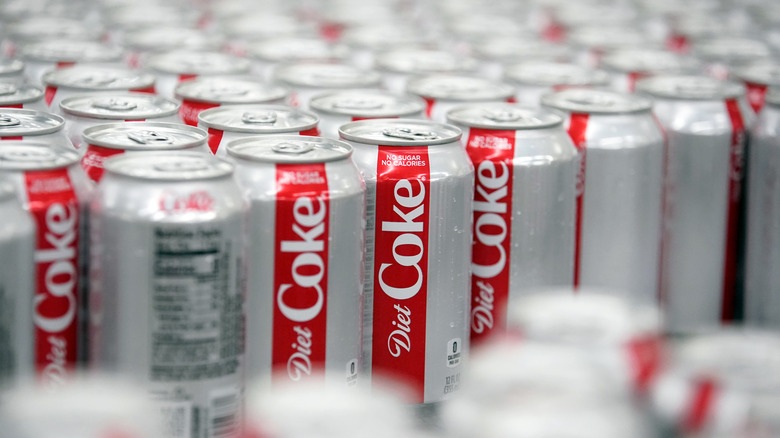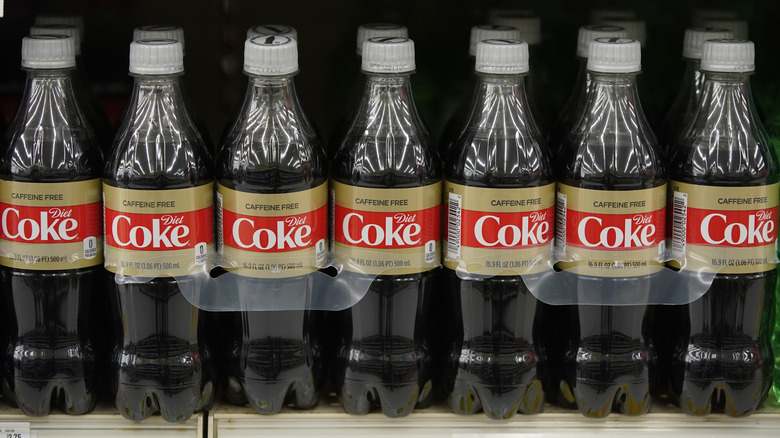This Recent Study Might Have You Swearing Off Diet Soda Forever
When diet soda was first introduced to consumers back in 1952, it was actually meant for diabetics. According to Fast Company, the first zero-calorie cola drink to hit the market was a beverage called "No-Cal" that used an ingredient called "cyclamate." This chemical is about 30 times sweeter than sugar, and since it isn't metabolized, it was "ideal for people who need to avoid sugar."
However, as the same Fast Company article explained, it didn't take long for the drink to catch on as a substitute for regular soda for anyone looking to cut a few calories out of their diets. Now, amid all the diet soda options from the infamous Diet Coke to Diet Pepsi, Zevia, and Diet Rite — just to name a few — diet cola has become a staple in our society among people looking to consume less sugar and those that just like the taste.
However, while diet cola certainly has fewer calories than traditional soda, these days it rarely carries the reputation for being "healthy," if anything, it's more of an alternative.
There have been significant studies that show diet soda is linked to a plethora of medical conditions, including type 2 diabetes, stroke, and heart failure (per Penn Medicine). According to Business Insider, many people now believe that the negative effects of diet soda are substantially worse than the sugar and calories from regular soda.
Still, it can be hard to knock the diet drinks when day-to-day, it seems that no calories are better than lots of calories. But, this may change when you hear the results of a new study.
Diet Soda may make you hungrier
A new study published in Jama Network Open suggests that diet soda might actually make you more hungry, meaning you'll end up eating more than the calories you "saved" by choosing a diet drink — especially in females and those who are overweight. Ultimately, many people who drink diet soda may end up gaining weight.
Reporting on the study, NPR wrote, "this finding suggests that diet drinks sweetened with sucralose could be disadvantageous to the people who could benefit most from an effective diet strategy." The current hypothesis is that the chemicals used to artificially sweeten the drinks trick your body into believing that real sugar is coming soon.
Your body is used to getting sugar when you taste something sweet, however, this doesn't happen when you drink diet soda. This can confused your body and your brain.
"When you get the sweet taste without the sugar, that changes how you respond to sugar the next time, because you don't know whether it's coming or not," Susan Swithers, a behavioral scientist at Purdue University, told NPR.
Ultimately, Swithers recommended avoiding diet sodas, particularly if you're drinking them with the goal of losing weight, to see if the change would help curb cravings for other high-calorie food.

